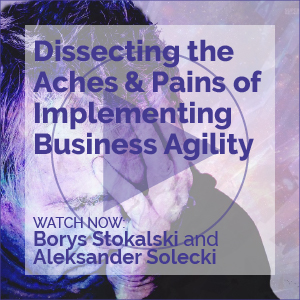IM Has Gone Corporate
The Limits of Model-T Business Models
Your business model is the manner in which you charge customers for your products or services -- the way you make money. Every software business model is associated with a license model. A license model is the terms and conditions (or rights and restrictions) that you grant to a user and/or customer of your software as defined by your business model.
Predictability and Flexibility -- The Executive Dilemma
Traditional plan-driven project management methods offer (a hope at least) project results to be predictably achieved; that planned costs, schedules, and functionality (scope) can be achieved by careful planning and control measures combined with repeatable processes.
Integrate 2002
Component Quality: The Great Debate
Feature Creep Versus Feature-Itis
Customer-Centric Understanding: A Key to the Bottom Line?
Open Software
Open Software
Open Software
Knowledge Management
Extreme Programming: An Interview with Kent Beck
The Impact of the Recession on Overseas Outsourcing
Two articles from earlier this year paint entirely different pictures of the impact of the current recession on the offshore IT industry. An article in the 6 February 2002 Financial Times ("Indian Software Sector Weathers Global Storm," by Khozem Merchant) says, "Global spending on technology services may be down, but India's competitive software companies, which benefited from the spending binge, are scarcely struggling."
If the Project Manager Is in San Diego, Can the Application Team Be in Fort Worth?
Or Chicago? Or Boston? Or Moscow? This is called distributed software development (DSD), where parts of the development team are located at distant sites. The focus is on distance, and the problem is one of communication between the team members; this is what characterizes a DSD project.
DSD Under the Microscope: An Up-Close Look at Distributed Software Development Organizations
A distributed software development (DSD) strategy is only suitable for very large projects: true or false? In DSD projects, you cannot mix software development with hardware development: true or false? Companies cannot apply DSD to all of their projects -- it is just too difficult to manage: true or false?
Are Companies Really Satisfied with Their Strategic Choice of DSD?
Yes -- it appears to be true. Companies are satisfied with their strategic choice of distributed software development (DSD). The tough challenges of DSD bear sweet fruit at the end of the road -- at least that is what many development organizations have indicated in a Cutter Consortium survey on DSD. In this, the third and final in a series of articles on DSD, we will report on problems that organizations encounter, how they resolve them, and how satisfied they are with their DSD strategy.
Outsourcing and Web Services: More Than Just Cost-Saving Tools
One benefit of running executive education courses is that I get to talk with a large number of IT executives in a forum that encourages us to think about issues. A few months ago, I helped run one at the Massachusetts Institute of Technology that included more than 50 IT executives. During meals and coffee breaks, we spent a good deal of time talking about outsourcing and Web services. An interesting concept emerged. Outsourcing did more than cut costs. It also provided training and discipline that many companies had been sorely missing.
The Overseas Option: A Status Report on Software Development Outsourcing
Although the US IT workforce has grown by 1% ... since the beginning of the year, the short-term hiring outlook continues to remain bleak ... [jobless] IT professionals [with] in-demand skills ... point the finger at H-1B visa holders and offshore programming outfits, where a growing number of companies are shifting their development and maintenance work to reduce costs.
-- Thomas Hoffman, ComputerWorld, 23 September 2002





